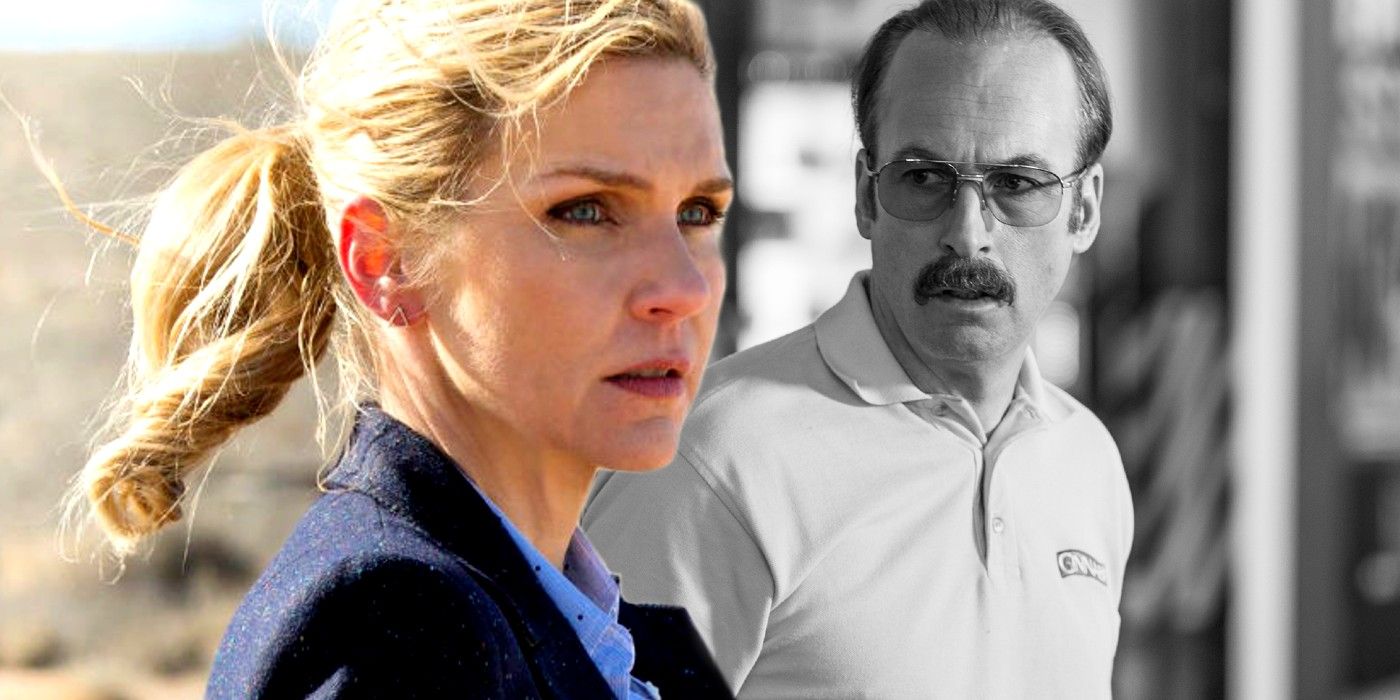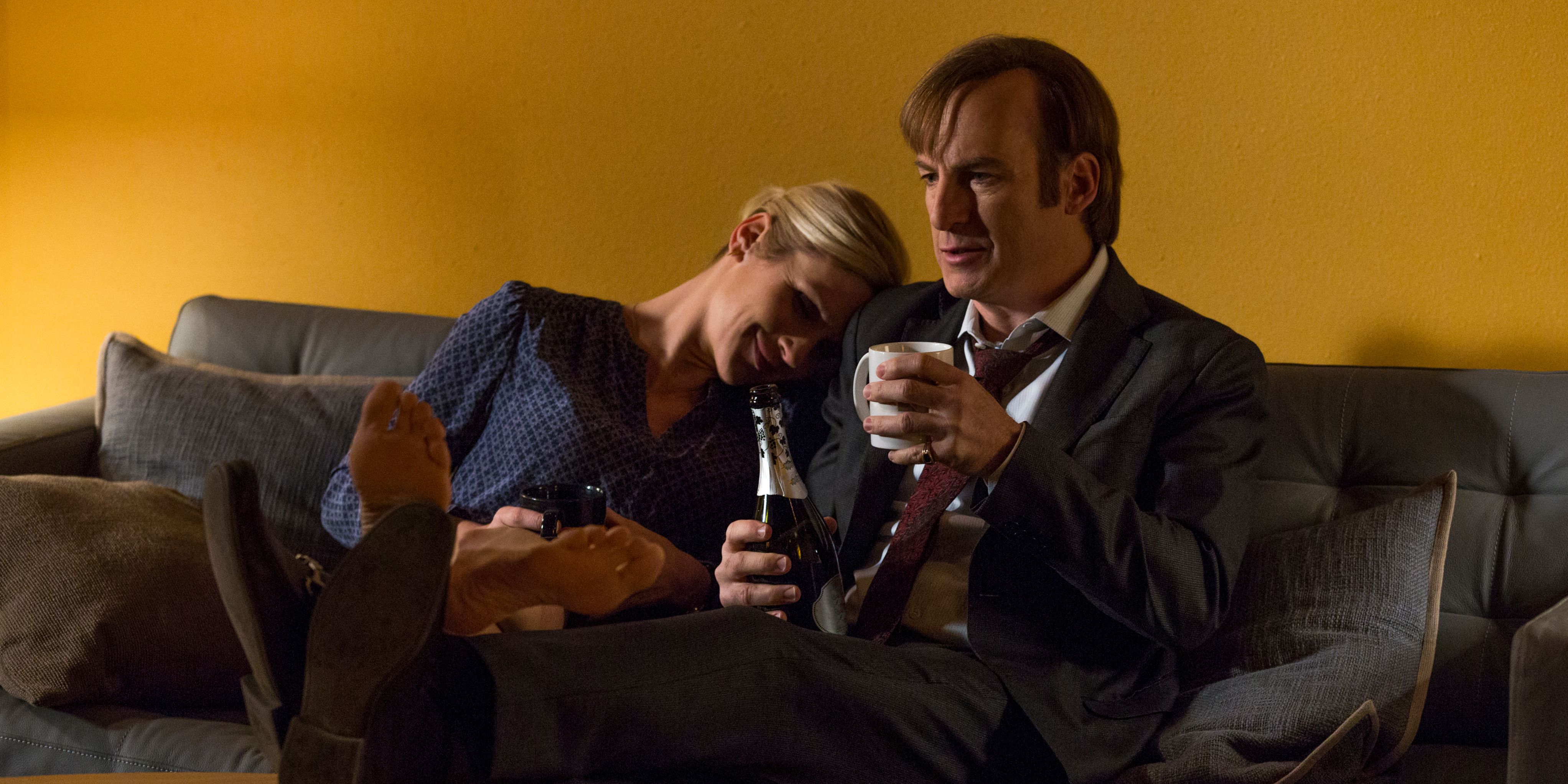To see how different Better Call Saul is from Breaking Bad, one needs only examine the spinoff's most important storylines heading into season 6. No one ever said creating a spinoff was easy. Any TV show that sprouts forth from another must live up to the reputation of its predecessor, be different enough to stand out but not so different as to turn away established fans, and enter new territory without contradicting the previous series. One of the biggest problems a spinoff (and a prequel especially) might face is crafting a personality all of its own. Repeating the same old tricks that worked before is easy, but the key to a great spinoff is forging uniqueness without alienating fans of the parent series.
And after 5 seasons, there's absolutely no doubt that Better Call Saul is a great spinoff. Already on-par with the critically-revered Breaking Bad, the adventures of Jimmy McGill might just overtake Walter White's when the final season lands. For Breaking Bad fans, Better Call Saul feels familiar, revisiting the same local haunts preferred by Albuquerque's finest meth vendors, and featuring familiar faces from Saul Goodman and Mike Ehrmantraut, to Gus Fring and Hector Salamanca. At a glance, Better Call Saul might even be considered closer to Breaking Bad that it is a show in its own right - but the spinoff's biggest season 6 storylines prove vehemently otherwise.
On one hand, Better Call Saul season 6 will contain plenty of stories that are either in service of Breaking Bad or act as setup for the arrival of Walter White. There's the continuing rise of Gus Fring in his war against the Salamanca family, leading directly into his Breaking Bad criminal empire. Hank continues to investigate the cartel, which informs his involvement from Breaking Bad's premiere onward. And when Lalo's fate is revealed, fans may finally discover what Saul meant when he said "it wasn't me, it was Ignacio" in Breaking Bad season 2.
But these aren't the biggest, most important elements of Better Call Saul's final season. The two questions audiences desperately want answered are the ultimate fate of Kim Wexler, and the resolution to the Gene scenes, neither of which has much of anything to do with Breaking Bad. Rhea Seehorn's Kim is a brand new addition for Better Call Saul, never referenced whatsoever in Breaking Bad. And yet through slick writing and an award-worthy performance, Kim has become as vital to the narrative as Saul himself. Viewers can't wait to discover whether Kim goes too far in her criminal activities, whether she finally decides to abandon Jimmy or, more intriguingly, whether Jimmy decides to sell her out. Kim's position at the heart of Better Call Saul's narrative is testament to how the spinoff has evolved beyond the confines of simply adding backstory to Breaking Bad.
Then there's the Gene storyline, so entirely independent from Breaking Bad, it takes place in a different time and place altogether. These black and white sequences occur after the lawyer's escape in Breaking Bad's final season, continuing Jimmy McGill's story in hiding as "Gene Takavic." Despite landing a job at Cinnabon, Gene has endured a tough time, and most recently found his secret identity rumbled by an especially shady cab driver. Better Call Saul's audience are eager to discover how Bob Odenkirk's character truly signs off and, once again, this arc exists entirely independently of Breaking Bad... unless.... no, they wouldn't.
Better Call Saul has defied the odds, not only by succeeding as a prequel spinoff where many others fail spectacularly, but also in matching the quality of Breaking Bad - one of the best shows to ever grace a TV screen. It speaks volumes about the storytelling of Vince Gilligan and Peter Gould that in spite of numerous Breaking Bad connotations in Better Call Saul's final season, it's the spinoff-original storylines people are looking forward to most.


